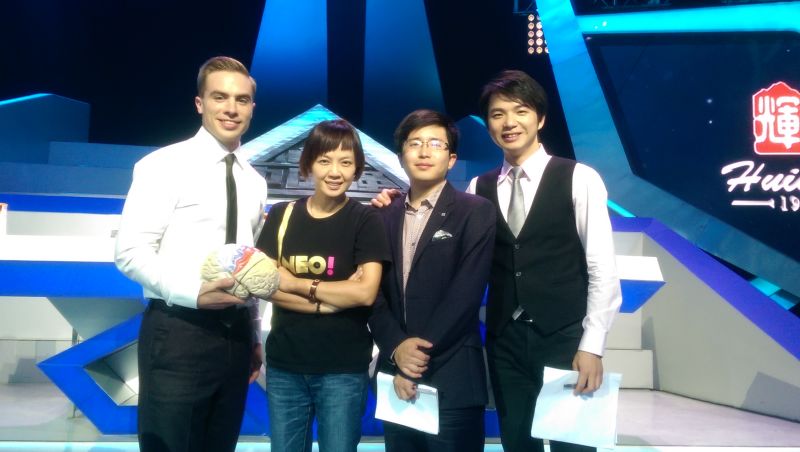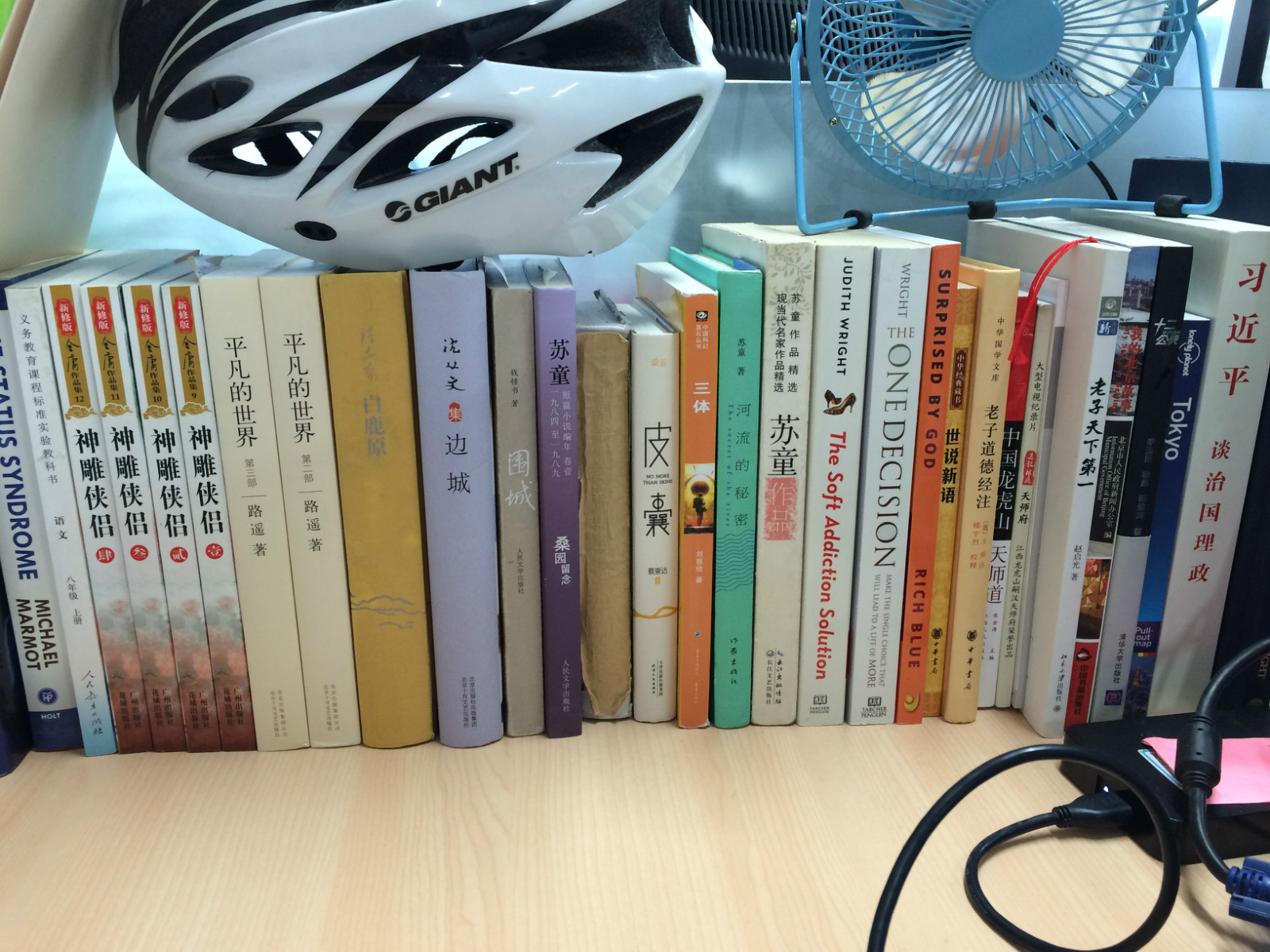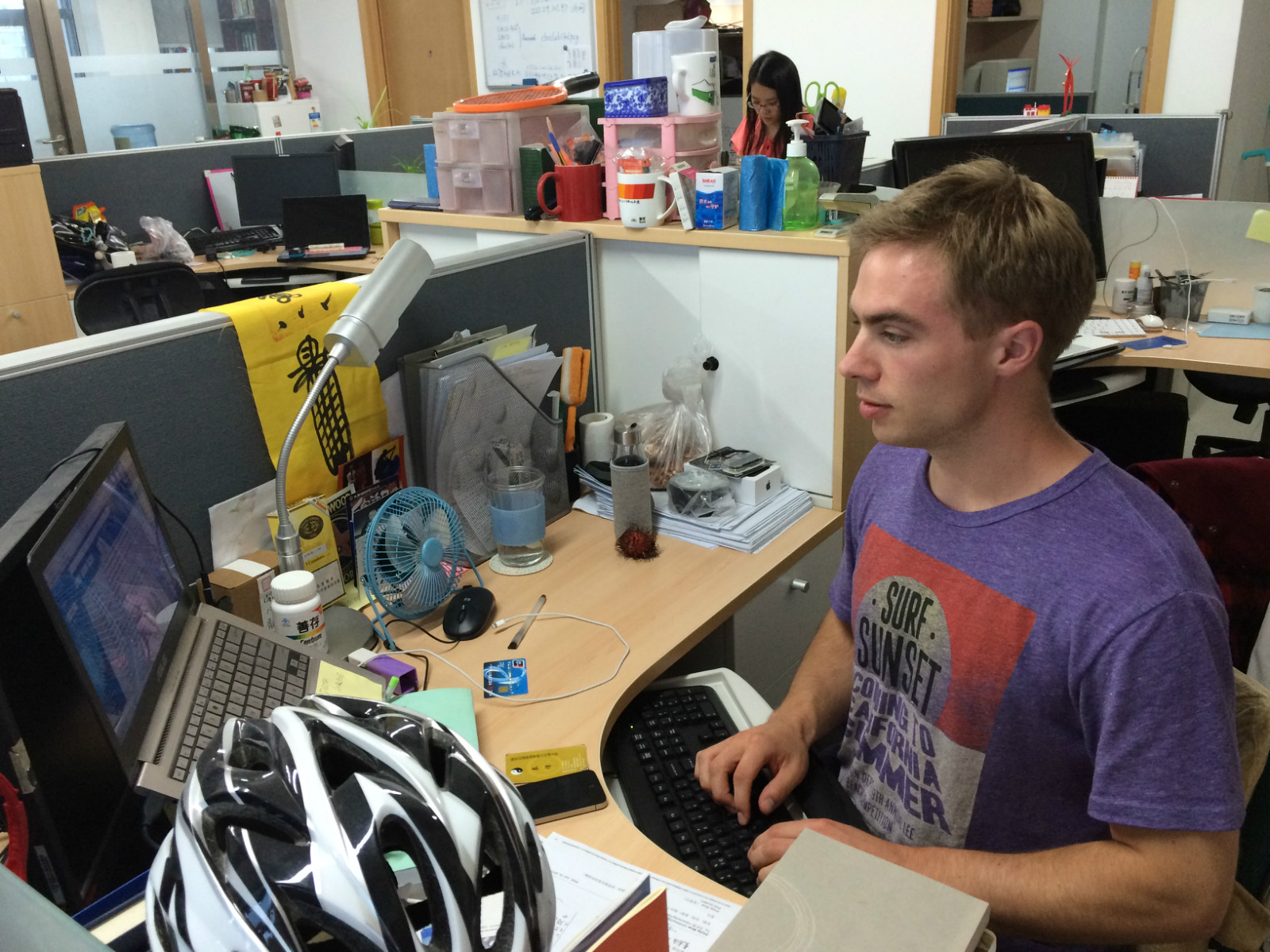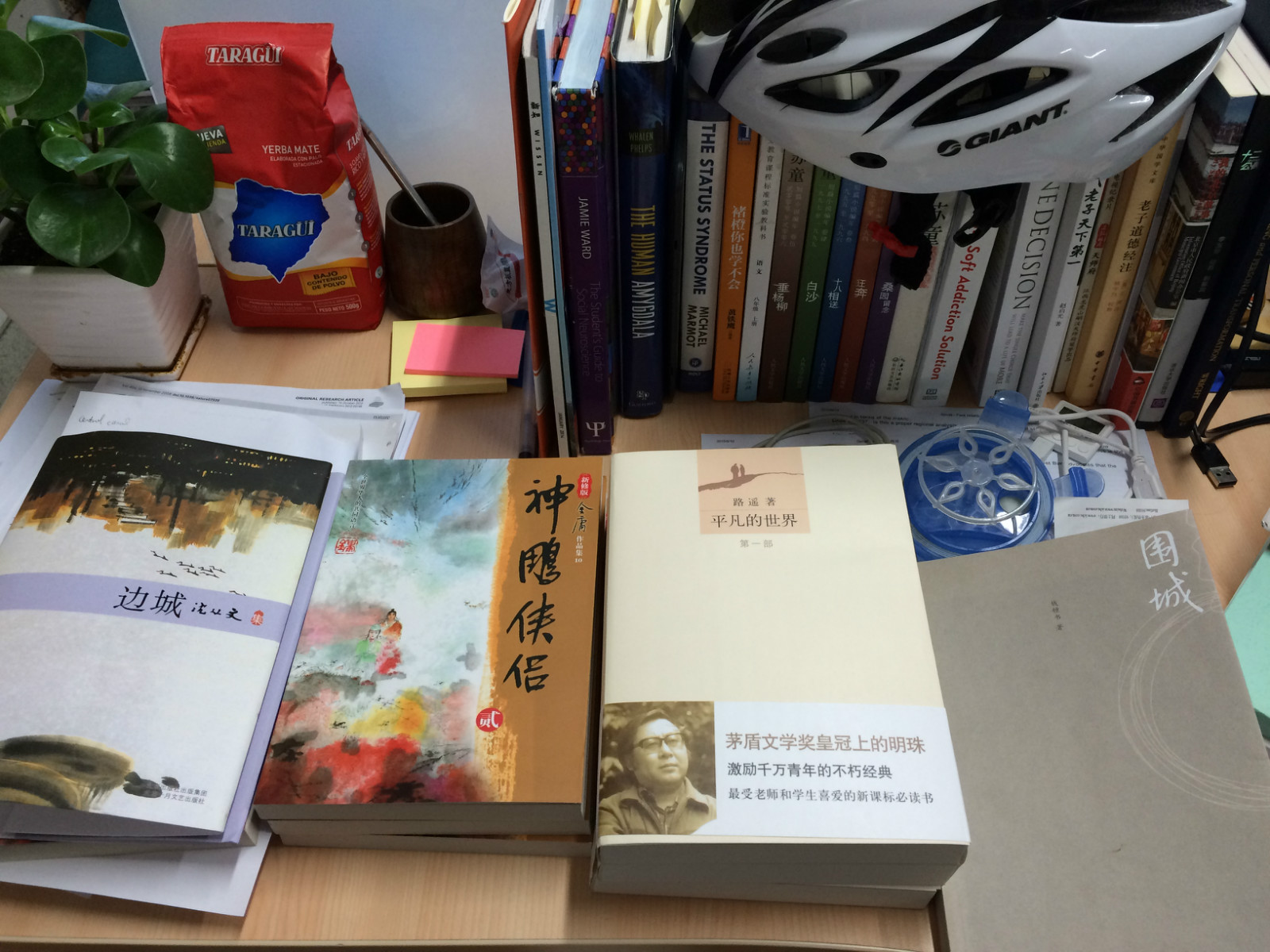When I first met Phil Blue, he was in black, with a typical appearance of a man from the U.S.. However, to my surprise, he could speak very fluent Chinese.
Born in 1987, Phil is now studying for his PhD in the Department of Psychology at Peking University. In the summer of 2014, he was invited as the neuroscience expert on a CCTV program, in which 50 gifted teenagers with high intelligence showed their talents and were evaluated by judges. In June, 2015, he also volunteered at a well-recognized language forum of psychology in China. He was also one of the hosts of 2013 PKU International Cultural Festival.
“How long have you been studying Chinese?”
“I’ve been here for four years, but only studied Chinese for one year.”

Languages mean a lot to him. “When you throw yourself into a country to learn a foreign language, the strong desire for communication and the anxiety of not being able to understand other peopleforces you to study the language well.” He reckoned that this full immersion is a good and very fast way of learning languages, as well as comprehending a language “Normally six months of full immersion is enough for any language.”

Then we discussed about psychology and sociology. Phil Blue is pursuing his degree at the Center for Brain and Cognitive Science under the guidance of his supervisor, Prof. Xiaolin Zhou from the Department of Psychology. His research primarily focuses on the influence of social status on people’s cognition of fairness and trust. The two projects he is participating in are coming along quite well. The research project on fairness has resulted in twopublished papers, one in Frontiers in Behavioral Neuroscience and one in Social Cognitive and Affective Neuroscience, with Impact Factors of 4.16 and 5.88. He has also participated on a paper about social norms with other four students, which was published in the Journal of Neuroscience, which has an Impact Factor of 6.747. The second research project is about trust. He has gone to Switzerland and the Netherlands to participate in academic forums related to this topic. Recently, he also published a paper on the genetic basis of perspective taking as the third author in Frontiers in Human Neuroscience. Due to his excellent academic performance, he was presented the Outstanding International Students Scholarship by the Chinese Ministry of Education and was also one of ten students to be awarded with the Student of the Year Award at Peking University.

According to Phil Blue, the reason for him to choose psychology is to “get to know human beings”. In China, the country with the largest population in the world, he enjoys to work with people here. “It’s a very diverse country. Also, due to its difference with westerns countries, my research is a lot more interesting to me.”
When asking him questions, I seemed to blurt out some phrases such as “you Americans” and “we Chinese” without thinking. But Phil told me that he’s trying to break those boundaries set by different countries and religions. He prefers exploring this world the simplest identification—a human being. He couldn’t bear some people calling him “a XXX-ist”. “These titles simply lock people inside and limit their cognitions about the world.” He would like to be a “mediator”, to ease the conflicts between cultures and build bridges for exchange and communication.
In the meantime, he recognizes the tendency for Chinese people to be very open-minded, which is partlyrelated to the education level. In most cases, people with higher education can accept more diversity of thoughts, however, there are still exceptions when educated people can be rigid and unaccepting. In his point of view, there are two kinds of people—good and bad. The good, which are the vast majority,give off affection and kindness, while the bad are extremists from inside and out. “Education cannot change everything”, said Phil, “the most important thing in these cases is family background.” Therefore, he intends to experience journeys and adventures when he’s still young, and eventually settle down when he finally has a family, and try his best to influence his children in a good way.
Phil Blue mentioned that a lot of people has methave dreams and longings for the unknown, but those who really dared to do so have been the minority. He suggested to me that I get moving as soon I have something I’m willing to do. He has done it thousands times—booking a ticket randomly and getting packed, then going on his journey. He once walked for 800 kilometers from France to Spain, and, in Argnetina, worked as a waiter in the most expensive restaurant while taking psychology classes at the University of Buenos Aries. “If you never take the first step, you will never know a country and its culture.”

Our conversations finished at nearly two o’clock in the afternoon. Phil stood up, saying “Sorry I have to leave.” Every day at this time, he must go to the Starbucks in Zhongguan Xinyuan to read Chinese books for about an hour. Every clerk in that coffee shop knows him quite well. He took out the book “World of Plainness” and read it very carefully. He has a tight schedule every day, which he regards as an effective tool to manage his life.
While answering questions, he always started with “in my opinion…”. He said he was afraid of misunderstanding possibly caused by his own words. During the CCTV program, he learned a lot about communication with people, how to reduce misunderstanding to the minimum. Although television is not his most interested field, he still reckoned this experience very enlightening and valuable.
Speaking of his previous achievements, Phil Blue sincerely expressed his gratitude to the professors and classmates in the lab. He knows that he doesnot do well in every aspect, but the professors and his classmates have offered great patience and tolerance to help him get better. “I hope I can carry on and go deeper in a certain area, in order to repay the kindness of those people who once helped him.
“People always see our talents and abilities and feel admiration, however, they don’t often notice our efforts.”

Written by: Chen Xingren
Translated by: Liu Xiya
